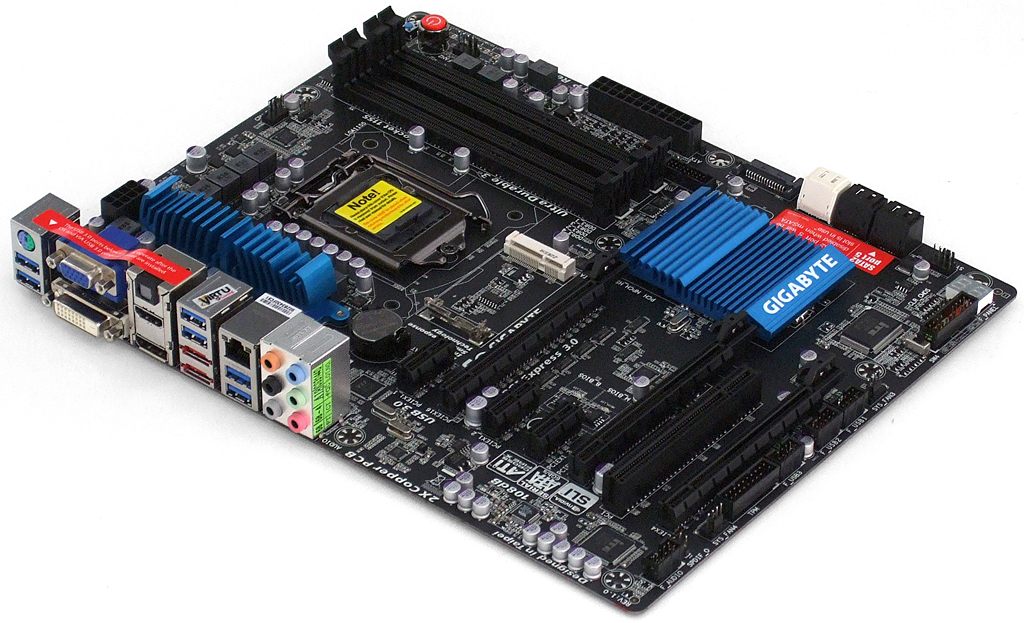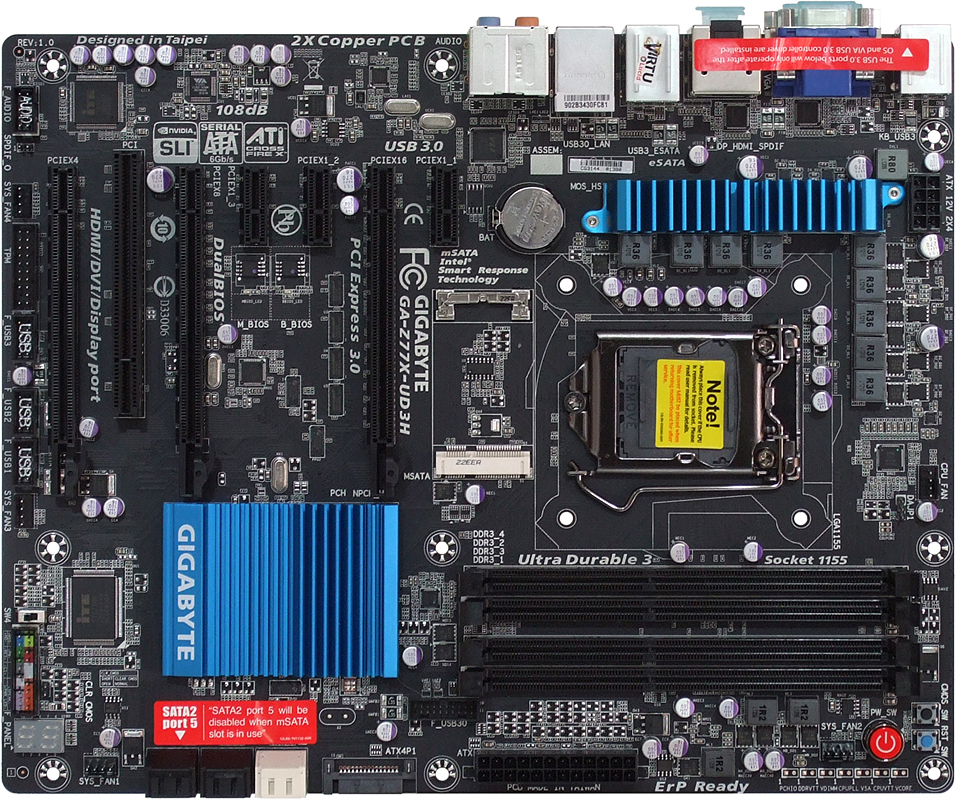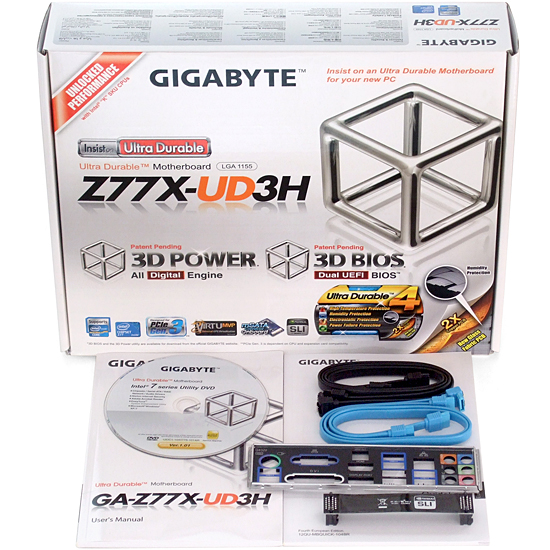Six $160-220 Z77 Motherboards, Benchmarked And Reviewed
Combining the newest features with moderate expandability, Intel’s mainstream platforms provide high value to most gaming and overclocking enthusiasts. We compare six examples with Z77 Express to find the best features, overclocking, and efficiency.
Get Tom's Hardware's best news and in-depth reviews, straight to your inbox.
You are now subscribed
Your newsletter sign-up was successful
Gigabyte GA-Z77X-UD3H
Gigabyte’s Z77X-UD3H offers a surprisingly broad feature set for its $160 price, adding a four-port USB 3.0 and separate eSATA 6Gb/s controller to the chipset’s integrated capabilities. Gigabyte’s familiar mSATA connector is also found mid-board, borrowing one of the chipset’s four SATA 3Gb/s ports when desired for SSD caching.
Familiarity in layout is a matter of form following function, with three spaces separating the two PCIe 3.0 graphics card slots to add cooling and/or allow thicker cards. LGA 1155 platform limits still apply, meaning that the CPU’s sixteen lanes can go to either a single card (x16 mode) or two cards (x8/x8 mode). Automatic switching takes care of that change whenever a card is installed in the second x16-length slot. The third x16-length slot is still limited to four of the Z77 PCH's PCIe 2.0 lanes.
The Z77X-UD3H keeps the power, reset, and CLR_CMOS buttons of its competitors, along with the Port 80-style diagnostics display. Gigabyte differentiates Z77X-UD3H overclocking with a row of voltage detection points along the top of its front edge, however. More importantly, it's the least-expensive product to include manually-selectable dual firmware ROMs.
With a front-panel USB 3.0 header handily located behind the bottom edge of memory slots, layout complaints are minor. First of all, the only two USB 3.0 ports derived from Intel's Z77 on the I/O panel must be used for a keyboard and mouse during O/S installation on most systems, since the other four VIA-based ports require a special driver to function. Second, all four VIA-based I/O panel ports share a single 5 Gb/s PCIe link to the chipset. Third (and more trivial) is the bottom-rear corner front-panel audio connector, which is around half of an inch too far of a reach for the cables of some cases. Fourth (and least significant) is the upward-facing latch of the eight-pin CPU power connector, which can be difficult to disconnect on systems that have bottom-mounted power supplies with the cable routed behind the motherboard tray.
For most users, the Z77X-UD3H’s positives far outweigh its negatives. That’s especially significant at its low price point.
Four SATA cables and a flexible SLI bridge make a sparse installation package for the Z77X-UD3H, though it should be adequate for most builders.
Get Tom's Hardware's best news and in-depth reviews, straight to your inbox.
-
yougotjaked There's a typo on the last page. It says X77H2-A2X instead of Z77H2-A2X :P It's on the second to last paragraph...Reply -
HMSvictory I am surprised that you guys did not include the Asus z77-VReply
http://www.newegg.com/Product/Product.aspx?Item=N82E16813131820 -
confish21 One thing i was looking for was the part about asrock not having true "digital" PWM and going with an analog PWM. Does this really matter?Reply -
Crashman TekN9NeGreat review! At the end of day, it comes down to brand loyalty.I don't think the article stated anything like that. It comes down to the features you want and the cards you plan to use. In the MSI vs ASRock debate, it's x8-x4-x4 with all three slots in PCIe 3.0 mode, or x8-x8-x4 with x4 in PCIe 2.0 mode, and you're definitely wiser to pick between them based on WHAT you plan to use in the third slot.simone saysdo you mean nvidia and intel gets news during weekends not only news but featured articles?It's Monday here, and editorial has very little contact with news.HMSvictoryI am surprised that you guys did not include the Asus z77-Vhttp://www.newegg.com/Product/Prod 6813131820Tom's Hardware didn't "include" anything in the review. A couple boards were excluded based on price, and everything else was let in. The P8Z77-V Pro was the cheapest board Asus sent.rickrentswhy not with Pci-e 3.0?Editor had no PCIe 3.0 cards. And the reason he didn't get one yet is because it didn't matter. The only thing that really mattered in a single-GPU MOTHERBOARD comparison was to use the same card on all platforms.confish21One thing i was looking for was the part about asrock not having true "digital" PWM and going with an analog PWM. Does this really matter?Some digital voltage regulators have been garbage, take a look at a few of the older reviews to see this. Very few have been very good. And many more analog voltage regulators have been garbage, while many more analog voltage regulators have been very good. Quality of execution is more important than the underlying technology.Reply



